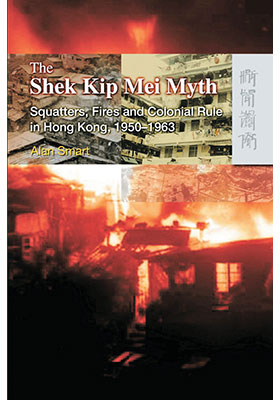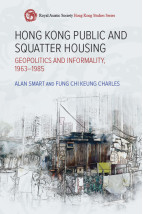The Shek Kip Mei Myth
Squatters, Fires and Colonial Rule in Hong Kong, 1950–1963
(石硤尾神話:寮屋、火災和殖民統治下的香港,1950年至1963年)
ISBN : 978-962-209-793-3
June 2006
256 pages, 6″ x 9″
- HK$195.00
Ebooks
Alan Smart raises serious questions about the standard view that Hong Kong’s mass public housing programme was a direct and humane response by the Government to the Shek Kip Mei fire. Rather he argues that the Government’s response to that fire was grudging and incremental rather than a sharp and radical turning point, and that the security and stability of Hong Kong weighed as heavily, possibly more so, in the decisions than the predicament of the fire victims. His research shows that a whole sequence of major fires after Shek Kip Mei, and the political costs of the Mainland sending comfort missions to fire victims both before and after were needed to bring about the final commitment to provide mass public housing. In his critical examination of the conventional position, Professor Smart bases his case on a thorough reading of government records and provides a careful investigation into the origins of the public housing policy in Hong Kong.
This volume makes an important contrarian contribution to the postwar history of Hong Kong and is a significant addition to the study of its modern development.
“A major contribution to our understanding of Hong Kong’s social history, this very readable study of public housing is highly relevant to contemporary Hong Kong. Alan Smart writes first class history with great conviction and, based on his own experience of their living conditions, with a special sensitivity to the squatter family and its struggle for shelter.
As he reconstructs in masterly fashion the transition from the squalid squatter colonies of early postwar Hong Kong to the massive public housing programmes that have transformed the living standards of so many Hong Kong families, he reveals the government’s reluctant acceptance of responsibility for providing decent housing for the community. In the process, he uncovers the serious handicaps of an unelected colonial administration. Professor Smart’s work is a remarkable piece of research into Hong Kong’s most pressing social problem.” —Leo F. Goodstadt



